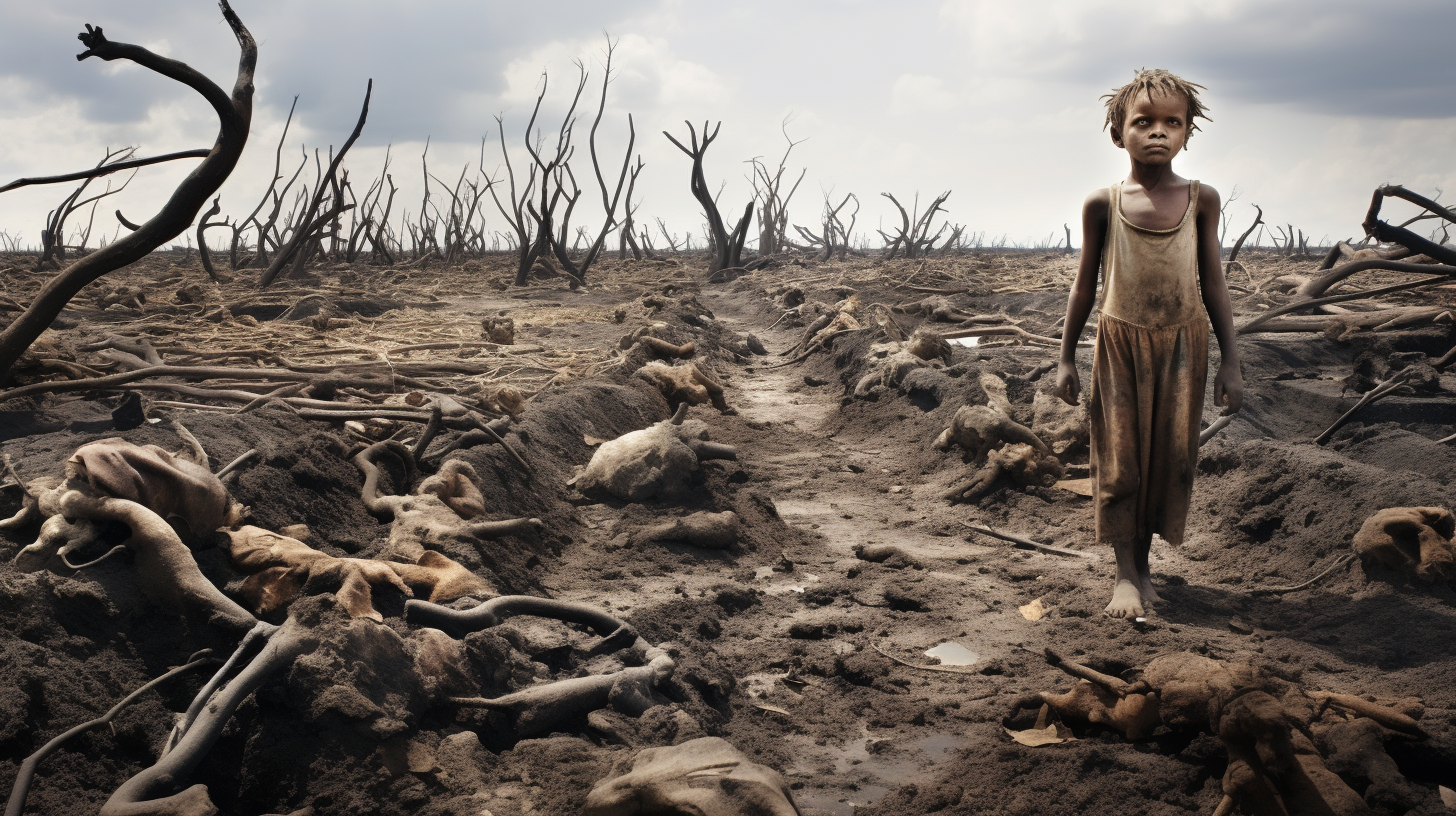In a world where the once-verdant fields have succumbed to the desolation of dirt, where humanity’s greatest enemy is an insidious hunger creeping through the empty streets, the question stands tall – what remains for a society starved not only for food but for change? We have journeyed ‘Beyond Hunger,’ delving deep into a chasm where the echo of the last grain resonates through our collective consciousness.
Once were the days of plenty, a distant memory now as we traverse the withering landscapes wrought by relentless weather aberrations. The silence of marketplaces, an aftermath of ‘Hunger Pangs as Fields Turn to Dust’, hangs heavy, signaling not just a loss of trade but the demise of community spirit. Echoing Dr. Aleksei Dryden’s grim acceptance of a ‘dystopian normal,’ we see survival in the eyes of the few remaining animate beings now synonymous with resistance against an unforgiving Earth.
The account, ‘Did Humanity’s Hubris Doom the Harvest?’, forces us to retrospect upon our own hand in shaping this desolation. Amidst the barren landscapes, we explore the relics of greenery, symbols of our arrogance. Technology, once heralded as the savior of our species, lies dormant, overtaken by nature’s reclamation. This ironic twist of fate is not lost on our hungry souls, desperately seeking solace in a world we thought we could control.
Our narrative does not entreat with hope for redemption; instead, it chronicles the stark reality of biomes that no longer bear. Desperate strategies are employed – from planting genetically modified super crops to the reliance on synthetic substitutes; yet the spiral downwards seems inexorable. Legislative reforms and international appeals for sustainability are but whispers in the clamor for immediate sustenance.
Individual tales of survival emit a glimmer of our intrinsic ingenuity – rooftop gardens flourish above the urban decay and communal meals in dimly lit halls signify a unity born of necessity. But these are scant against the wave of change that is needed; they are mere moments of defiance in a world rejecting human dominion.
The cry for a renaissance of environmental stewardship goes unheard as governments, fractured by their own needs, falter in the face of calamity. By sculpting this environmental requiem, we reflect upon the gravity of climate disaster. Science fiction has become our science fact, as ‘frankenfish’ swim through acidified oceans and ‘zombie crops’ push through parched earth.
Our reportage is a sonnet to the silent earthworm, the tireless bee, the vanished canopy – each loss a note in the dirge of diversity. This extends an invitation to deep reflection, to consider the impact of our lifestyle choices on the planet, and to acknowledge the profundity of change needed to reclaim a semblance of the world we once knew.
Indeed, discussions around the dinner table now linger on what might have been had we listened and acted. Was the warning clear enough, were the signs too subtle, or was it our innate hubris that deafened us to the screams of a dying world? ‘Beyond Hunger’ serves as a mirror, revealing the stark visage of our collective failure. It is not the reflection we long for, but it is the truth we must face.
